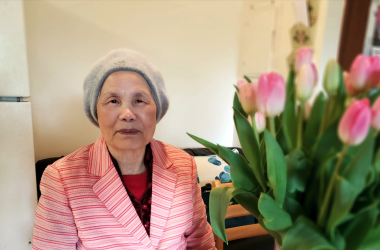Gary Kiyuna is on a mission to get more help for Malheur County’s troubled children.
The Nyssa attorney for years has been appointed by the state to represent the legal needs of children moved into state custody.
He has seen one heart-breaking situation after another.
“You’ve got infants going through meth withdrawal,” Kiyuna said. “You have shaken babies, battered babies, raped and sodomized children. It’s pretty brutal.”
Kiyuna wants the state to expand the Parent Child Representation Program into Malheur County. This is a program that gives public defense attorneys and social case managers more time to deal with challenging family situations, but it operates in only 10 Oregon counties – and none in eastern Oregon.
Attorneys are appointed in juvenile dependency cases to represent children found to be abused, and in juvenile delinquency cases for children accused or convicted of the equivalent of adult crimes.
“This is part of public defense that nobody really talks about,” he said. “We’re more like the Red Cross.”
“There is a lot more to doing juvenile defense, especially dependency law, than just going to court appearances.”
–Alan Reynoldson, Newport attorney
Officials say the Parent Child Representation Program, which runs under the Oregon Office of Public Defense Services, boosts the effectiveness of that work. Attorneys in the program are high on their participation, explaining they have much better chances of rebuilding families, getting them out of courts, and avoiding abusive situations in the future.
The key is time.
Attorneys who work in the public defense system representing parents or children carry high caseloads – at least 120 clients or so at a time. In rural areas such as Malheur County, those attorneys also have to take on clients in surrounding counties. That can put Kiyuna on the road from Nyssa to Burns for a Harney County court proceeding – requiring hours of drive time.
‘You’re triaging’
Such workloads leave attorneys “completely overloaded,” according to Judah Largent, a Corvallis attorney who moved into the new state program. “You’re triaging.”
The program limits public defense attorneys to 80 clients at a time.
“We want to make sure attorneys have reasonable caseloads so they have adequate time to spend with their clients,” said Shannon Flowers of the state public defender office. “The intent is really to provide overall better representation and more effective representation.”
Another key element is that lawyers get a state-funded case manager to work alongside them. That case manager can handle the work of arranging help for parents, such as getting into treatment programs.
“There is a lot more to doing juvenile defense, especially dependency law, than just going to court appearances,” said Alan Reynoldson, a Newport lawyer participating in the state program. “The ultimate goal is to fix families.”
Caseworkers crucial
Reynoldson has time to travel to homes where his child clients are living, which may mean a grandmother’s home hundreds of miles from Newport.
The case manager who works with him is “amazing,” he said, adding that “some clients won’t talk to me but they will talk to her.”
“We are much more hands on, dealing with fewer cases,” he said.
He recounted a mother with three boys ages 11, 13 and 14 who had no father around. The mother fell into drug use.
“This was a struggling family,” he said.
Now, criminal charges have been resolved, and the family is reunited and has a stable place to live.
“We don’t have near the recidivism because the families are actually fixed,” Reynoldson said.
Largent said having more time to work with children and their parents is essential.
He described lengthy conversations with a client who he discovered was functionally illiterate. That meant the parent didn’t understand the paperwork warning the state was preparing to sever parental rights to his children.
“Now, they have their two kids back,” he said.
State officials say they are working to evaluate how well the program works in Oregon, but other states with such programs have found that children spend less time in costly foster care.
Largent represents a girl who had been sexually abused and is in a care facility.
Dealing with unstable homes
“I talk to her every two weeks,” Largent said, and along the way learned what she wanted to do, what would make her feel safe.
“She’s being able to advocate for her own long-term planning,” Largent said.
Largent said kids in the juvenile justice system often have unstable home lives and many have mental health issues.
“Instead of punishing them, I want to figure what has gone wrong in this child’s life and what support do they need from the community,” Largent said.
The Oregon effort started in 2014 in Linn and Yamhill counties and over the years expanded to Columbia, Coos, Lincoln, Multnomah, Benton, Clatsop, Polk and Douglas counties.
State officials calculate it would take just $9 million a year to expand the program into every county. The Oregon Legislature is the key to getting that money, and the state system is evaluating what kind of funding request to make when legislators convene early next year.
“We’re certainly aware that providers throughout eastern Oregon, specifically Malheur County, are interesting in having this program,” said Flowers.
Kiyuna appeared the state Public Defense Services Commission in June to press for that expansion.
He made the case that the split system means some parents and children aren’t getting the access to legal help assured by the U.S. Constitution.
“The burden going forward to retrofit this defective due process structure falls on the state,” he wrote in his presentation. “The victims of this leaky structure are often injured and tormented children or under diagnosed disabled parents.”
Kiyuna took his crusade to the Malheur County Court in July, underscoring different services for parents and children in counties that have the state program. The court has taken no action.
“Children and parents get awarded more attorney time – period,” Kiyuna said. “Our kids, our parents are not being treated the same.”
Contact Editor Les Zaitz: [email protected]
SUPPORT OUR JOURNALISM – We report on the Salem community with care and depth, fairness and accuracy. We depend almost solely on subscribers to cover our costs. Get local news that matters to you. Subscribe to Salem Reporter. Click here: I want to subscribe!

Les Zaitz is editor and CEO of Salem Reporter. He co-founded the news organization in 2018. He has been a journalist in Oregon for nearly 50 years in both daily and community newspapers and digital news services. He is nationally recognized for his commitment to local journalism. He also is editor and publisher of the Malheur Enterprise in Vale, Oregon.









